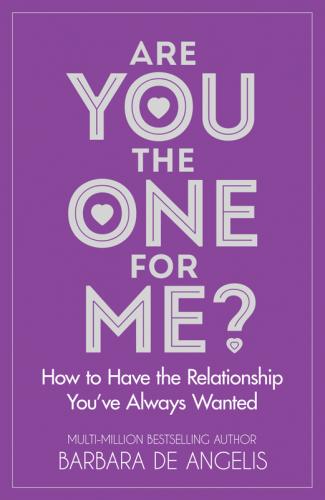Remember your basic math from school, where you learned:
If A = B, and B = C, then A = C
Let’s use this same principle to illustrate ‘going home’:
YOUR MIND WILL EQUATE WHATEVER ASSOCIATIONS YOU HAVE ABOUT ‘HOME’ WITH WHAT LOVE IS SUPPOSED TO FEEL LIKE.
So if home felt like chaos, you might seek unstable partners who will help you create dramatic, chaotic relationships. If home felt like loneliness, you might seek a partner who doesn’t give you enough love, affection, or attention, so that you end up feeling lonely. If home felt like fear, you might attract someone who always criticizes you, threatens to leave, or makes you jealous, so that you always feel fearful. You unconsciously choose what is familiar—you are going home.
Obviously, we all have positive associations with home as well, which we also seek to reproduce in our adult life. I’ve found, however, that it is the more painful associations that can cause the most trouble, because they are usually unconscious. In other words, if you came from a home where your parents showed you a lot of affection but criticized one another, you might consciously seek a partner who was very loving, but unconsciously attract someone who was critical.
HOW ANN WAS ‘GOING HOME’ IN HER RELATIONSHIPS
We’ve been following Ann throughout this chapter. Ann is a thirty-nine-year-old woman with a history of attracting irresponsible, emotionally distant men. Ann is now happily married to Adam, but still finds herself afraid to trust completely because of her past experiences. Reading Ann’s emotional programming list, you can see how she went ‘home’ in most of her relationships with men. When I asked Ann to write down her negative associations with home, here is what she came up with:
HOME = Disappointment
Denial
Lack of communication about feelings
Betrayal
Inadequacy
Dishonesty
Abandonment
Substitute the word love for home, and you see Ann’s unconscious associations regarding love:
LOVE = Disappointment
Denial
Lack of communication about feelings
Betrayal
Inadequacy
Dishonesty
Abandonment
Ann was amazed at how similar her negative description of her childhood was to her negative description of her adult relationships. All of her love affairs included the same emotions she felt as a little girl. Ann had left home physically, but she hadn’t left home emotionally. She continued to recreate the same emotional circumstances, because, as unpleasant as they might have been, they were what she was used to. The good news was that in her marriage to Adam, Ann felt very few of those old, familiar feelings. Unlike Ann’s previous partners, Adam was responsible, successful, and emotionally open. ‘It looks like I’m finally leaving home!’ she remarked. ‘Adam is helping me change many of the negative decisions I’d made about love. Even though there are times when Adam reminds me of my father, we can talk about my reactions together, which allows me to heal.’
I asked Ann to redefine her concepts of home and love by turning each negative quality into its opposite and adding others.
Ann’s new list:
HOME & LOVE = Trust
Honesty
Communication about feelings
Fidelity
Reliability
Consistency
Safety
Support
WHY MITCHELL CHOSE WOMEN WHO WERE EMOTIONAL BASKET CASES
Remember Mitchell, the thirty-six-year-old attorney who kept attracting women who smothered him and depended on him to fix their lives? Here is his list about home and love:
HOME & LOVE = Drama
Lack of stability
Responsibility
Mom’s pain
Crisis
No child-hood
Mitchell’s mother was an alcoholic who couldn’t function as an adult half of the time. When she wasn’t passed out, she was on an emotional roller coaster. Mitchell’s dad was a quiet, passive man whose method of dealing with his wife’s disease was denial. As the oldest child in the family, Mitchell ended up taking on much of the responsibility that should have been his mother’s—cooking, cleaning, caring for his younger sisters and brother. In this way, he really had no childhood.
Mitchell’s biggest burden, however, was the emotional one he took on in trying to fix his mother. ‘I loved my mom so much,’ Mitchell shared, ‘but nothing I could do would get her to stop drinking. I felt like I was her only hope. No wonder I don’t realize how screwed up these women are when I meet them,’ he exclaimed. ‘Emotionally unstable, dramatic women seem ‘normal’ to me. It feels familiar—just like home. It’s what I experienced every day of my life’
Does becoming aware of his emotional programming completely eradicate it for Mitchell? Of course not. But now that he is conscious of his ‘weakness’ for rescuing messed-up women, he can be much more vigilant about making sure to choose self-sufficient, healthy partners.
Now it’s your turn to look at your emotional programming about home and love.
EXERCISE: DEFINING ‘LOVE’ AND ‘HOME’:
STEP 1 Make a list of the negative associations you have with the word ‘home’ from childhood. Try to use a word or phrase, as in the examples above, rather than a long description.
STEP 2 Substitute the word ‘love’ for ‘home’ to understand more about your unconscious programming
